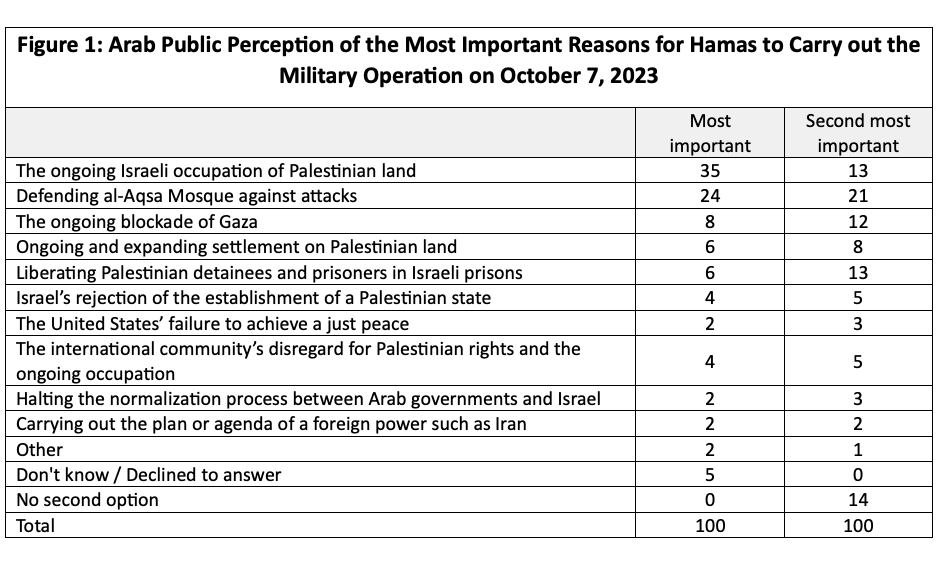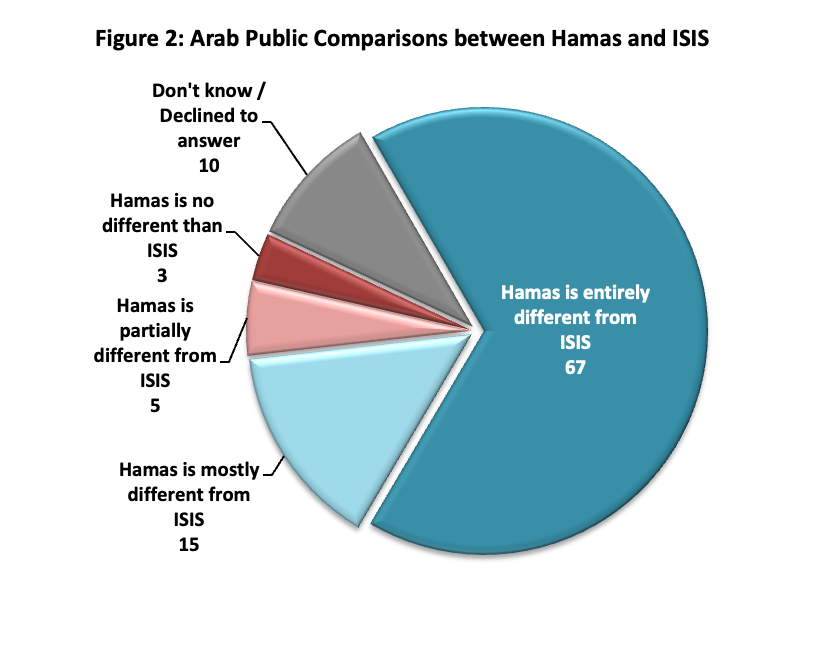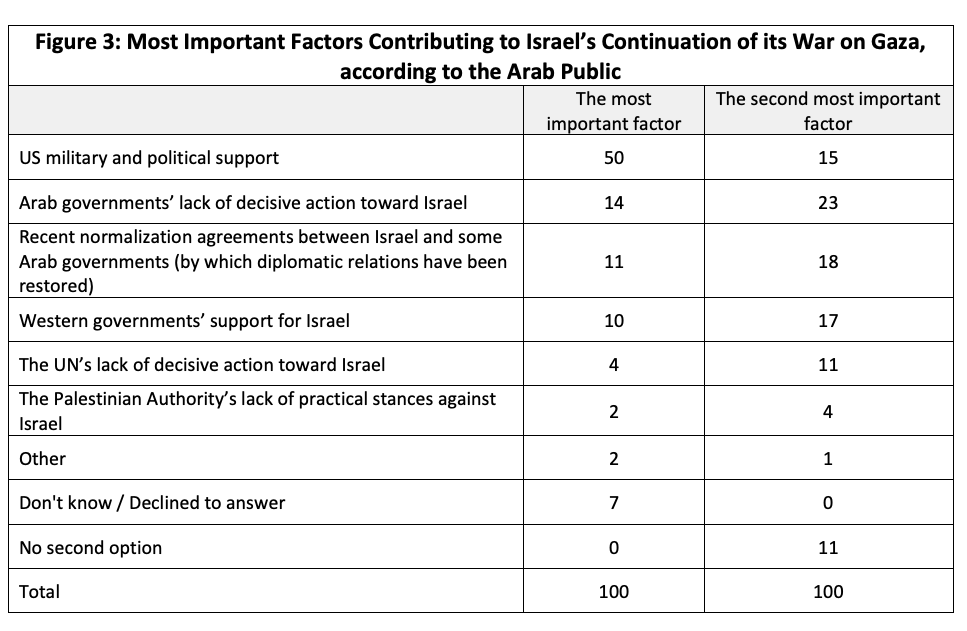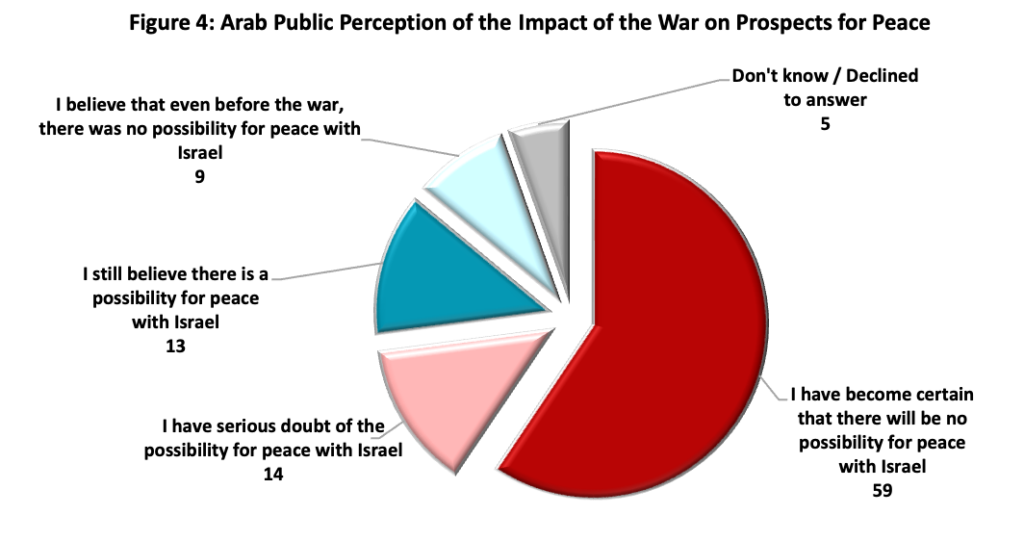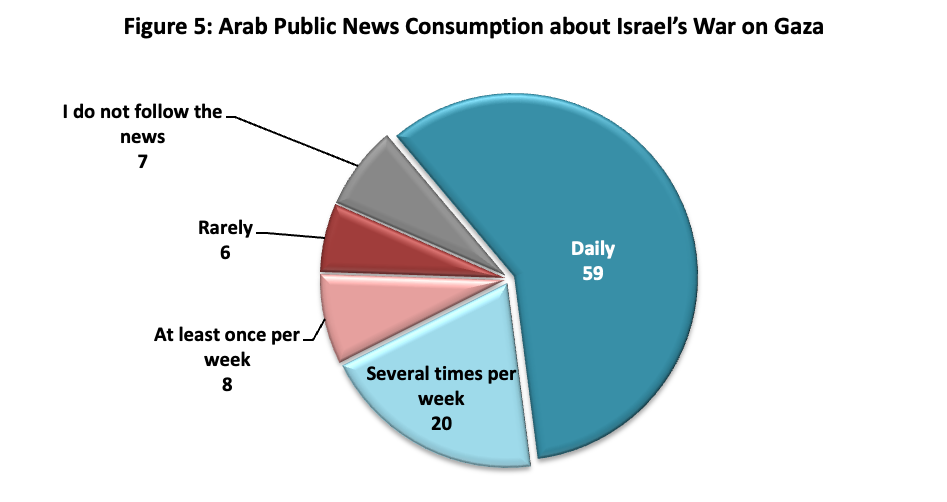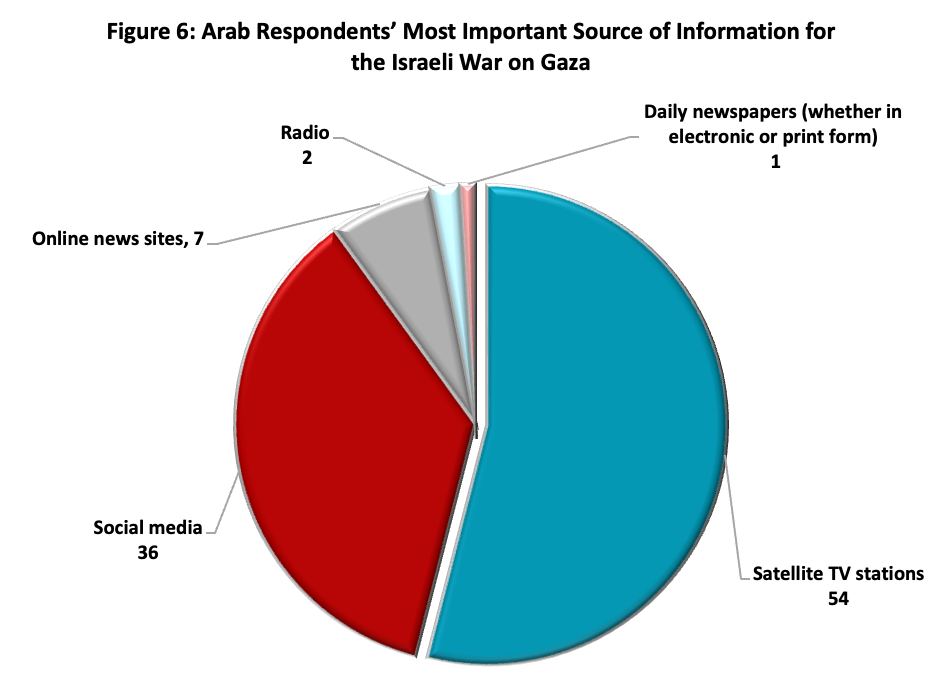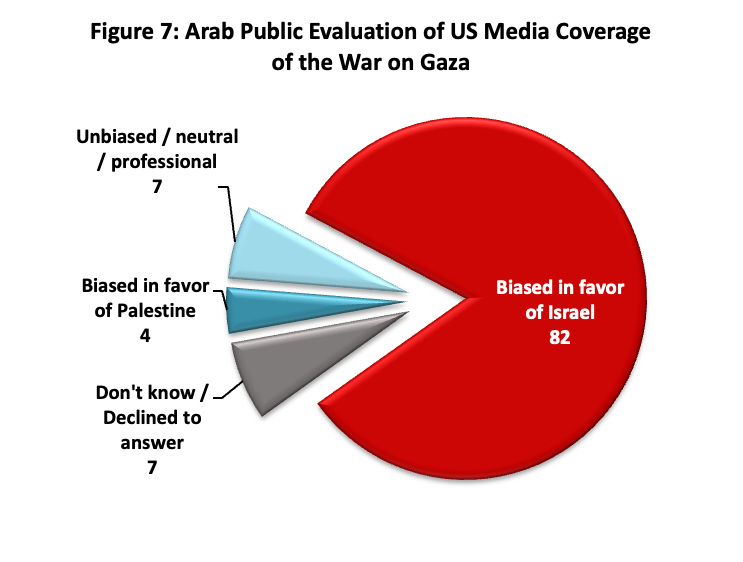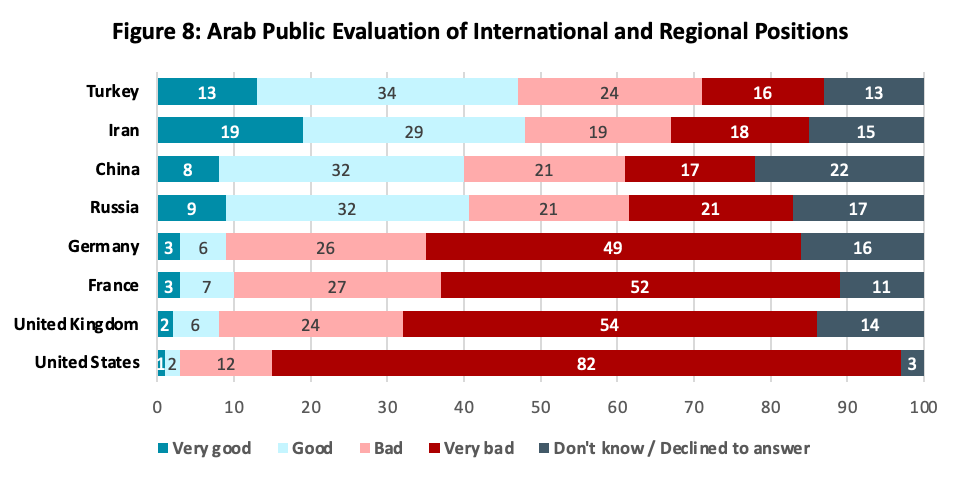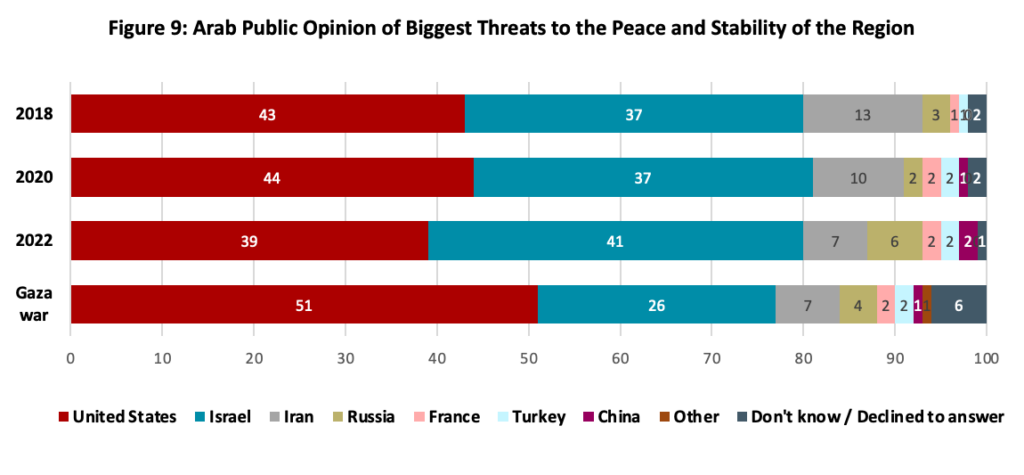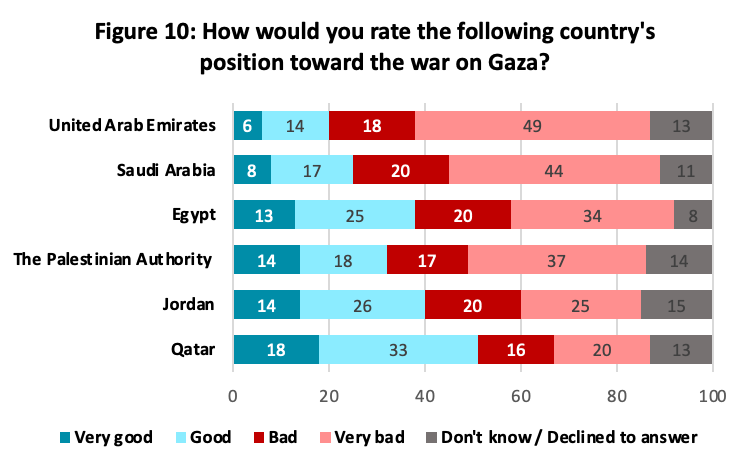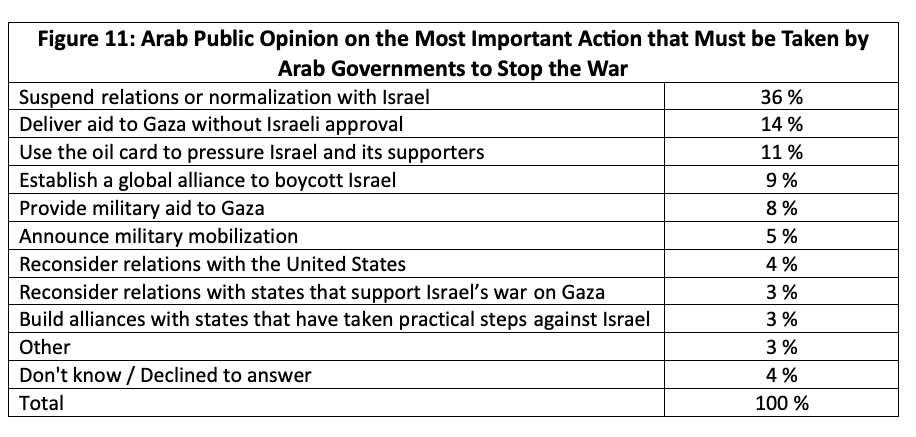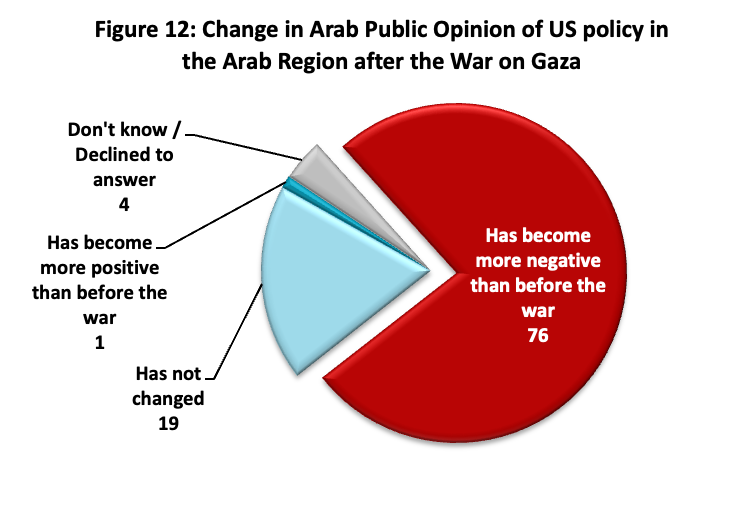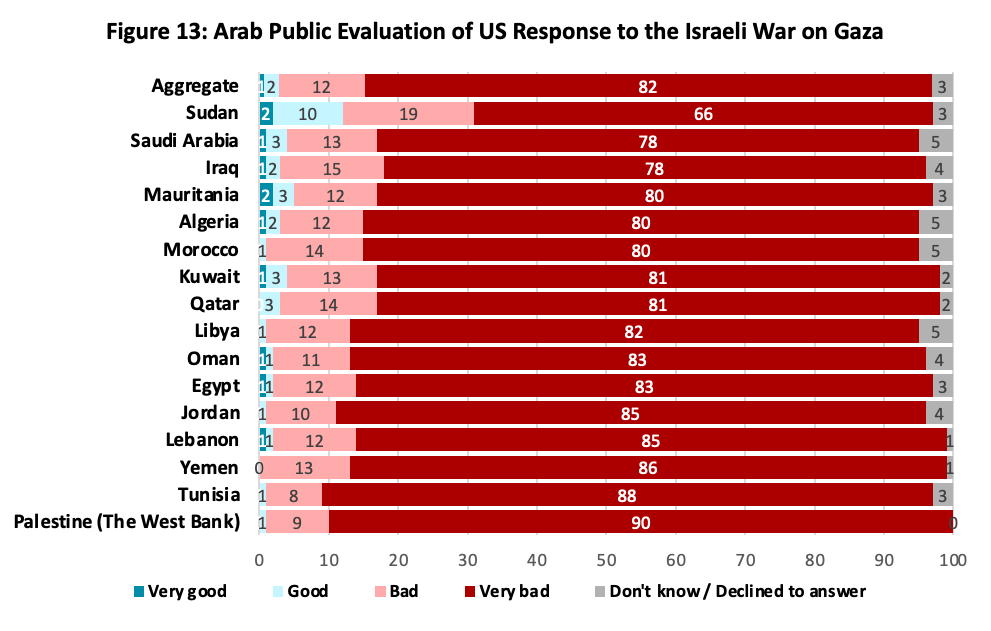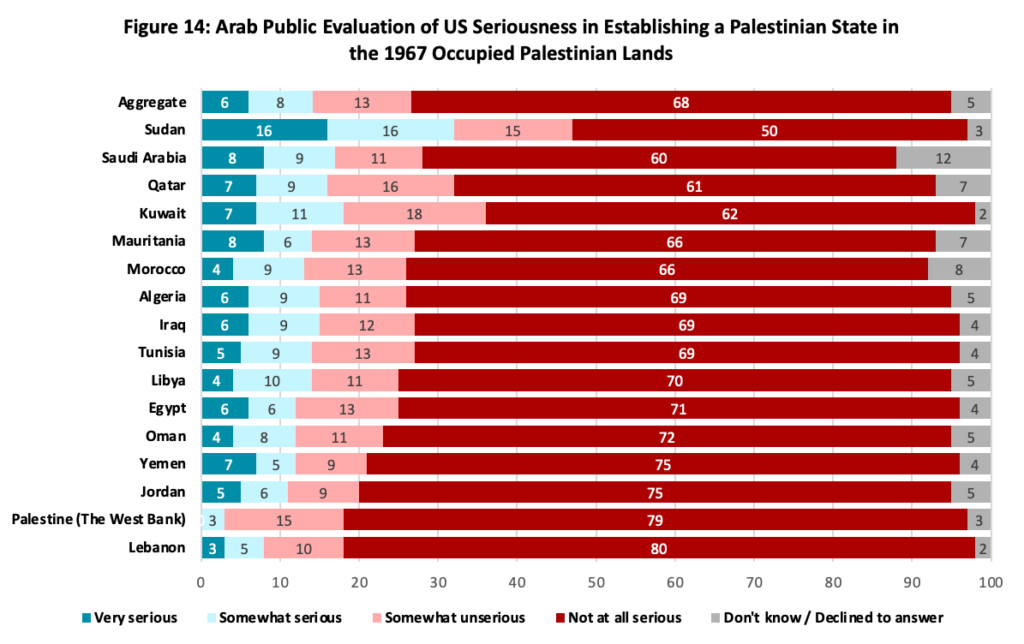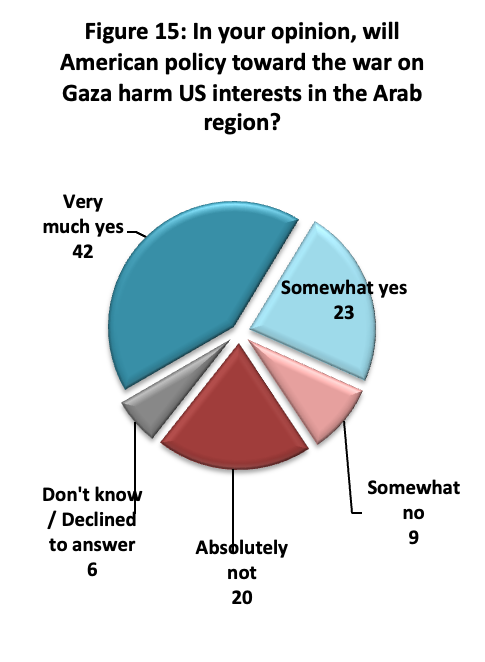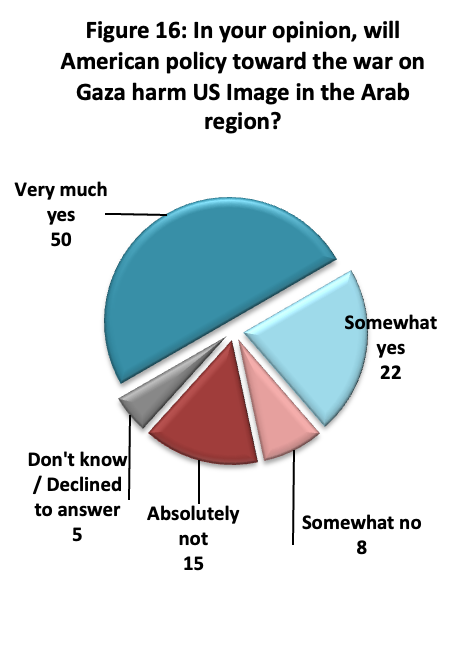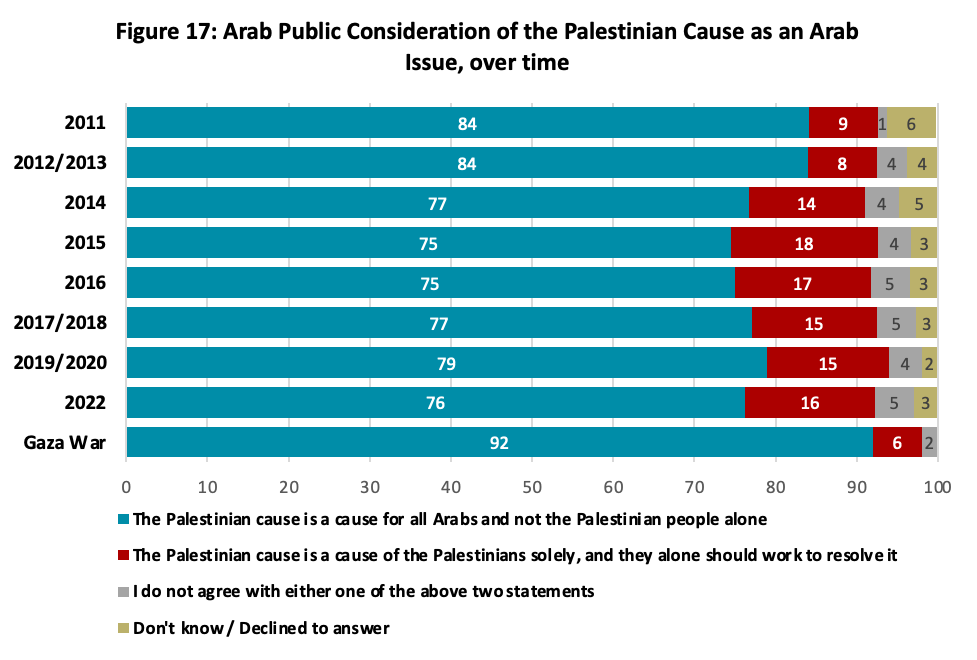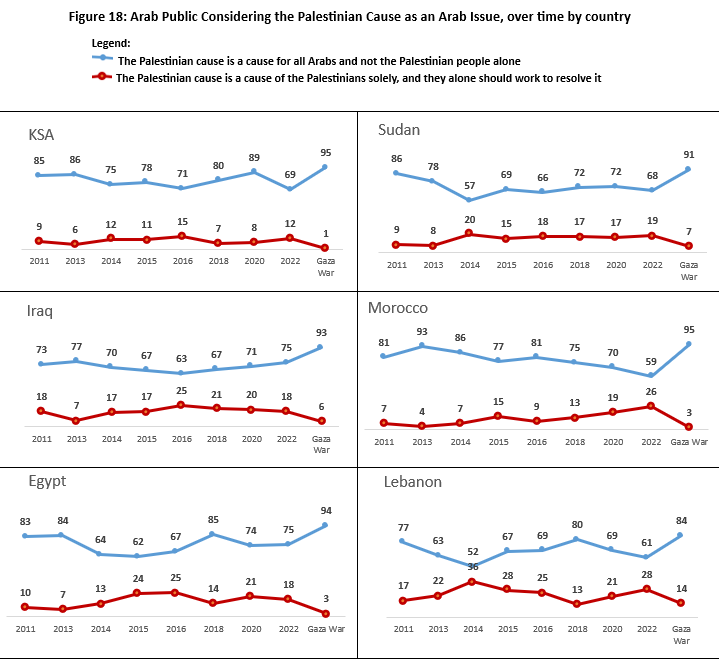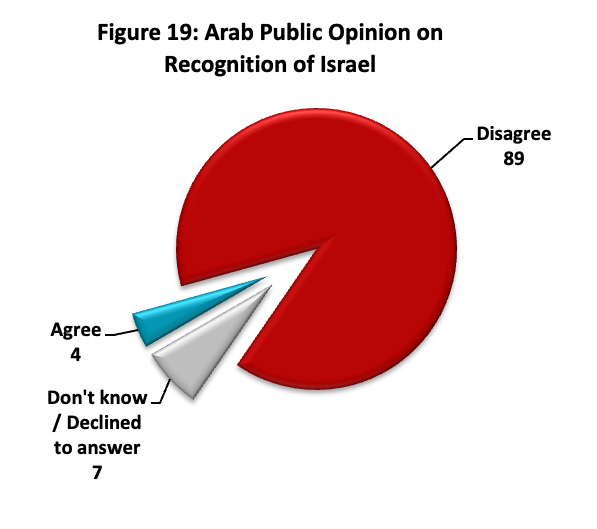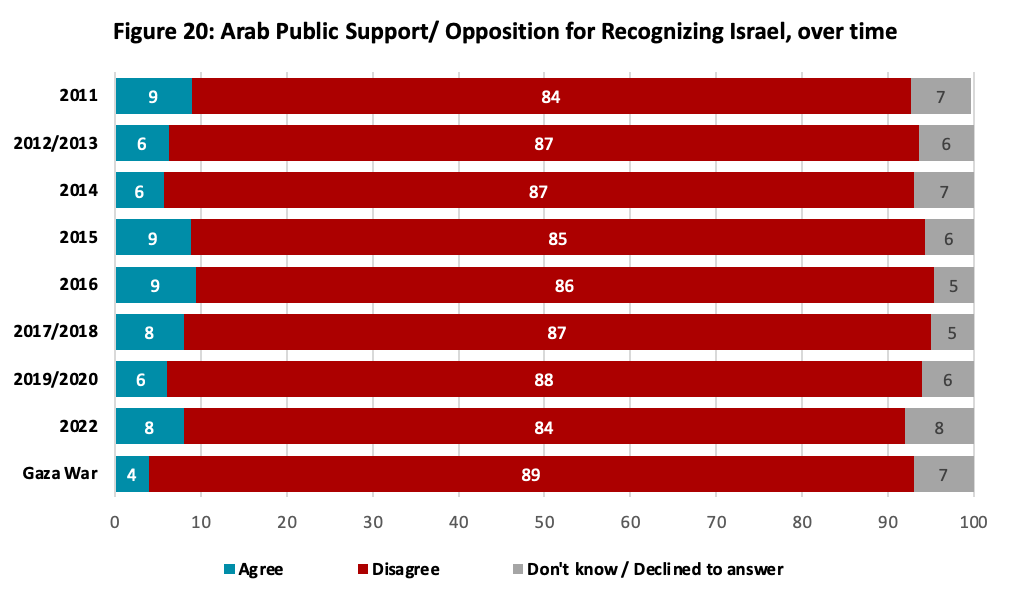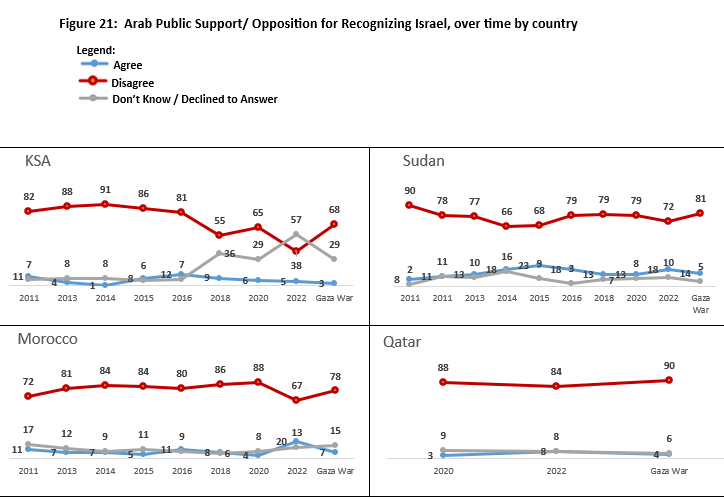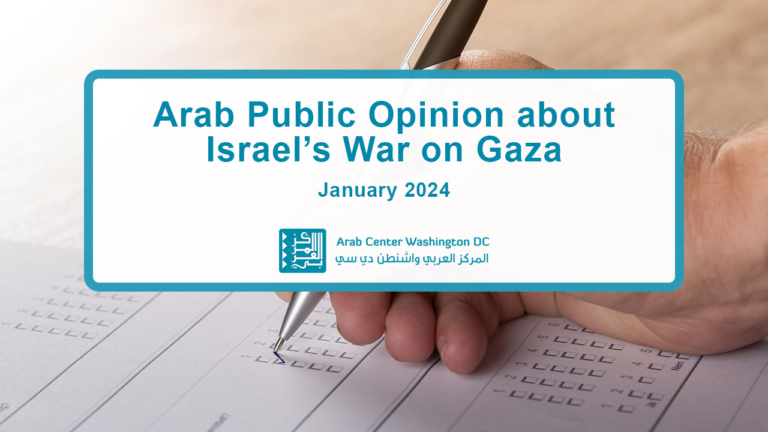
Arab Center Washington DC (ACW), in cooperation with The Arab Center for Research and Policy Studies (ACRPS), conducted a survey of public opinion in 16 Arab countries to gauge the Arab public’s views about the Israeli war on Gaza that began on October 7, 2023, and Arab perceptions of the US role and policies toward the war. The poll is the first of its kind to measure Arab public opinion on the topic.
The survey is based on telephone interviews conducted between December 12, 2023, and January 5, 2024, with a representative sample of 8,000 individual respondents in the following 16 Arab countries: Algeria, Egypt, Iraq, Jordan, Kuwait, Lebanon, Libya, Mauritania, Morocco, Oman, Qatar, Saudi Arabia, Sudan, Tunisia, the West Bank in Palestine, and Yemen. These countries represent more than 95% of the population across the Arab region.
Sampling followed a randomized, stratified, multi-stage, systematic, self-weighted and size-adjusted clustered method, giving an overall margin of error between +/- 3% and 4% for the individual country samples. The overall samples guarantee probability proportional to size (PPS), ensuring fairness in the representation of various population segments such that every individual in each country surveyed has an equal probability of being included in the sample. The Arab regional opinions were calculated as an average of the results of the 16 surveyed countries, with each country given the same weight (that is, the relative weight of each country was not taken into account). All countries were thus treated as similar units with the same population in order to avoid the opinions of citizens of the most populous countries prevailing over others in determining overall public opinion. The sections below provide selected highlights from the findings.
- Section 1: General Attitudes and Drivers of the War
- Section 2: News Consumption and Assessment of US Media
- Section 3: Attitudes toward the Roles of International and Regional Actors
- Section 4: Arab Public Opinion of the US Role and Interests
- Section 5: Changes in Attitudes toward Normalization and the Abraham Accords
Section 1: General Attitudes and Drivers of the War
The survey included a set of questions about the factors that contributed to the continuation of the Israeli war on Gaza. First, looking at the Hamas attack on October 7, 2023, the respondents were asked about the most and second most important reasons motivating Hamas. The results demonstrated a diverse range of reasons behind the operation. While 35% of respondents stated that the most important reason was the continued Israeli occupation of the Palestinian territories, 24% stated that it was Israel’s targeting of Al-Aqsa Mosque, 8% said it was the ongoing siege on the Gaza Strip, and 6% attributed it to the continuation of Israeli settlements in the Palestinian territories.
During the war on Gaza, some politicians and media personalities have drawn comparisons between Hamas and the Islamic State (ISIS). The survey reveals that 82% of respondents said that Hamas is not similar to ISIS while 3% said that Hamas bears resemblance to ISIS.
Regarding the factors enabling Israel to continue its war on Gaza, 50% of the Arab public indicated that US military and political support is the most important factor, while 14% said the failure of Arab governments to take decisive measures against Israel to stop the war is the most important factor. A further 11% of respondents named the recent normalization agreements between Israel and some Arab governments, while 10% reported that Western governments’ support for Israel is the main reason.
In terms of prospects for peace, in the wake of the war on Gaza, 59% of respondents reported that they have become certain there would be no possibility for peace with Israel, 14% reported that they have serious doubts, and 9% said that they had not believed in the possibility for peace with Israel in the first place. Only 13% reported that they still believe in the possibility of establishing peace with Israel.
Section 2: News Consumption and Assessment of US Media
The results reveal that 79% of respondents have followed the news of the war closely, while only 7% did not follow at all. The highest rates were recorded in Palestine, Jordan, and Lebanon.
Regarding information sources, 54% of respondents relied on television, compared to 43% who relied on the internet, the majority of whom reported using social media to follow war events.
Respondents were asked for their impressions regarding the US media coverage of the war on Gaza. While 82% reported that they believed that the US media was biased in favor of Israel, only 7% believed that it was neutral/unbiased, and 4% reported that it was biased in favor of Palestine.
Section 3: Attitudes toward the Role of International and Regional Actors
When asked about the responses of regional and international powers to Israel’s war on Gaza, a near consensus of 94% considered the US position to be bad, with 82% considering it very bad.
A majority of 79% of respondents viewed the French position as bad or very bad as opposed to 10% who said it was good or very good. Another 75% of respondents saw Germany’s position as bad or very bad, compared to 9% who saw it positively. Similarly, 78% of respondents reported that the British position was bad and very bad, compared to 8% who reported it positively.
The results indicate split opinions on the position of Russia and China; 42% of respondents evaluated the Russian position as negative (very bad and bad), while 41% evaluated it as positive (very good and good). Similarly, 38% of respondents saw the Chinese position negatively, while 40% of responses were positive, and about a quarter of respondents reported that they did not know.
Against 48% of respondents who expressed a positive view of the Iranian position, 37% held a negative view. Meanwhile, 47% evaluated the Turkish position positively, against 40% who evaluated it negatively.
When asked about the countries that most threaten the security and stability of the Arab region, 51% of respondents said that the policies of the United States are the most threatening, followed by Israel with 26%, while 7% of respondents said that Iranian policies are the most threatening and 4% said Russian policies. The consideration of the US as the biggest thereat increased after Israel’s war on Gaza.
Respondents were also asked to evaluate the positions of Arab countries toward the Israeli war on Gaza. A majority of 67% of respondents viewed the UAE position as bad or very bad as opposed to 20% who said it was good or very good. Another 64% of respondents saw Saudi Arabia’s position as bad or very bad compared to 25% who saw it positively, and 54% saw the Egyptian position negatively compared to 38% who saw it positively. Similarly, 54% of respondents reported that the Palestinian Authority’s position was bad and very bad, compared to 32% who reported it positively.
The results indicate that 45% of respondents evaluated the Jordanian position as negative (very bad and bad) while 40% evaluated it as positive (very good and good), and 36% of respondents saw the Qatari position negatively while 51% of responses were positive.
When asked about their opinions on what measures Arab governments should take in order to stop the war in Gaza, respondents’ attitudes varied. While 36% of respondents stated that Arab governments should cancel all relations or normalization processes with Israel, 14% stated that aid and support should be brought into Gaza without Israeli approval, and 11% believed that Arab governments must use the oil card to put pressure on Israel and its supporters. Meanwhile, 9% believed that Arab countries should establish a global coalition to boycott Israel, and 8% expressed that Arab governments must provide military support to the people of Gaza.
Section 4: Arab Public Opinion of the US Role and Interests
Respondents were asked whether there was a shift in their attitude toward the United States following the Israeli war on Gaza. While 76% reported that their position had become more negative, 19% said that their position had not changed, and 1% reported that their position had become more positive.
Overall, Arab public opinion of the US response to the Israeli war on Gaza is overwhelmingly negative, with 82% seeing the US response as “Very bad” and 12% as “bad.”
When asked about their confidence in the seriousness of the United States in working to establish a Palestinian state in the territories occupied in 1967, a large majority of respondents (81%) expressed views that the US government is not serious in working to establish a Palestinian state in the 1967 occupied territories, against just 14% who said the opposite.
When asked whether US policy toward the war on Gaza will harm US interests and US image in the Arab region, the majority of Arab respondents agreed with 65% saying it will harm US interests and 72% saying it will harm US image.
Section 5: Changes in Arab Attitudes toward Normalization and the Abraham Accords
The results indicate that the Arab public views the Palestinian cause as an Arab issue, and not as an exclusively Palestinian issue. There is almost a consensus among citizens of the countries included in the survey, at 92%, that the Palestinian question concerns all Arabs and not just Palestinians. Only 6% said that it concerns the Palestinians alone and they alone must work to solve it. It is worth noting that this percentage is the highest recorded since 2011, when ACRPS began asking this question in its surveys as part of the Arab Public Opinion Index. Compared to the 2022 poll, Arab public support for the idea that the Palestinian cause concerns all Arabs has increased by 16%. In contrast, the percentage of those who stated that the Palestinian question concerns Palestinians alone and that they alone must work for its resolution decreased by 10%, from 16% in the 2022 poll. This shows a statistically significant change in public opinion.
Public opinion in each of the countries surveyed demonstrates a similar rate of agreement that the Palestinian cause is an Arab issue, with the highest percentages recorded in Saudi Arabia, Algeria, Jordan, Egypt, Sudan, Morocco, Tunisia, and Iraq, where more than 90% of respondents agreed. A fundamental change has occurred in the opinions of respondents in a few Arab countries following Israel’s war on Gaza. For example, in 2022, 68% of Sudanese respondents saw the Palestinian issue as a concern for all Arabs, soaring to 91% in this poll. The same applies to Saudi Arabia, where the percentage was 69% in 2022, reaching 95%, while in Morocco, the percentage increased from 59% in 2022 to 95%.
Gauging Arab public opinion regarding the recognition of Israel, the results show that Arab public opinion is almost unanimous in rejecting the premise of recognizing Israel, at a rate of 89%, compared to only 4% who support its recognition.
Comparing the results of this poll to the results of the 2022 poll indicates a 5% increase in those opposing recognition, from 84% in 2022 to 89% in the current survey.
This poll has recorded significant changes in public opinion across all surveyed countries. Of particular note is the increase in the percentage of those who oppose recognizing Israel in Saudi Arabia, from 38% in the 2022 poll to 68% this round. A similar statistically significant increase also applies to other countries such as Morocco, where the percentage rose from 67% to 78%, and Sudan, where it increased from 72% to 81%. It is important to note that the majority of respondents from countries whose governments have signed peace agreements with Israel –namely Jordan, Palestine, Egypt, and Morocco, which recently joined a process of normalizing political relations, as well as Sudan– oppose their countries recognizing Israel. There is a near consensus in Jordan, Palestine, and Egypt opposing recognition of Israel.

